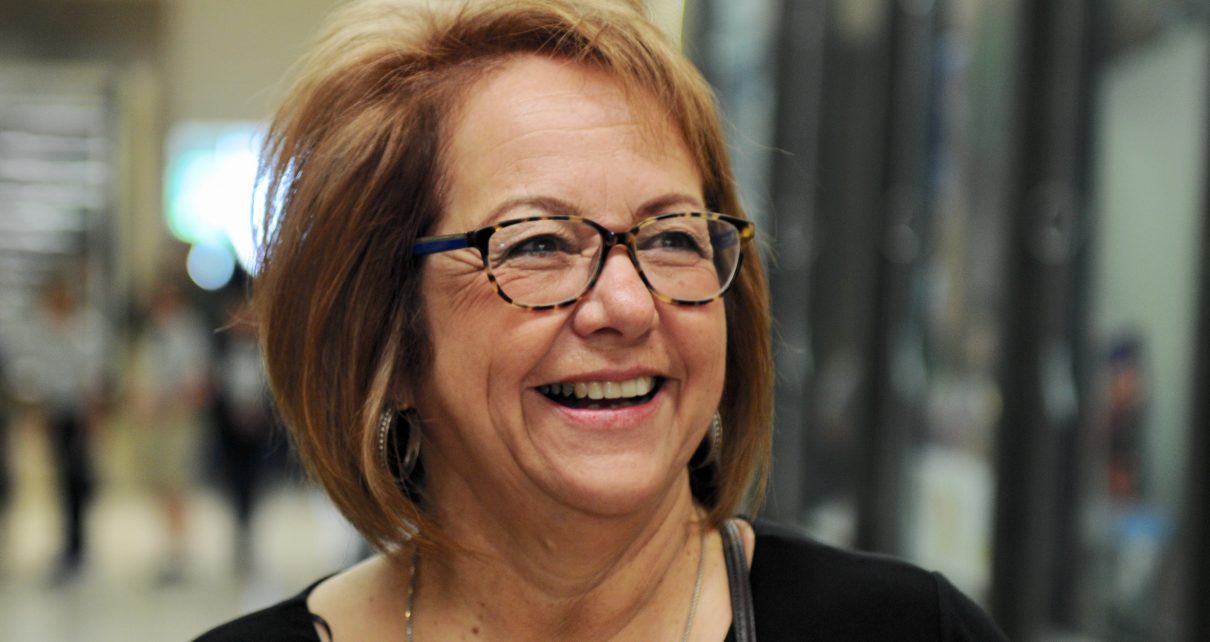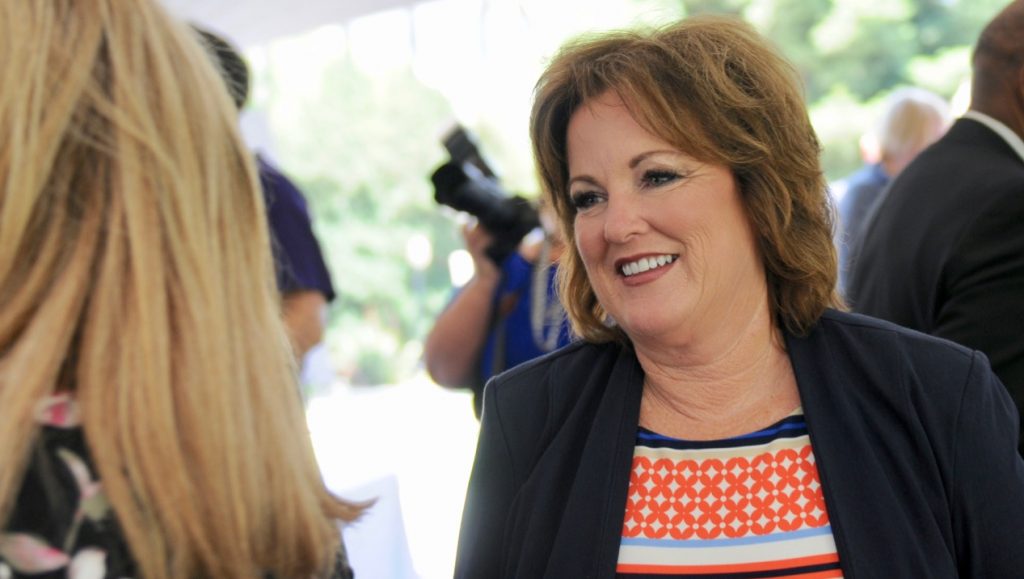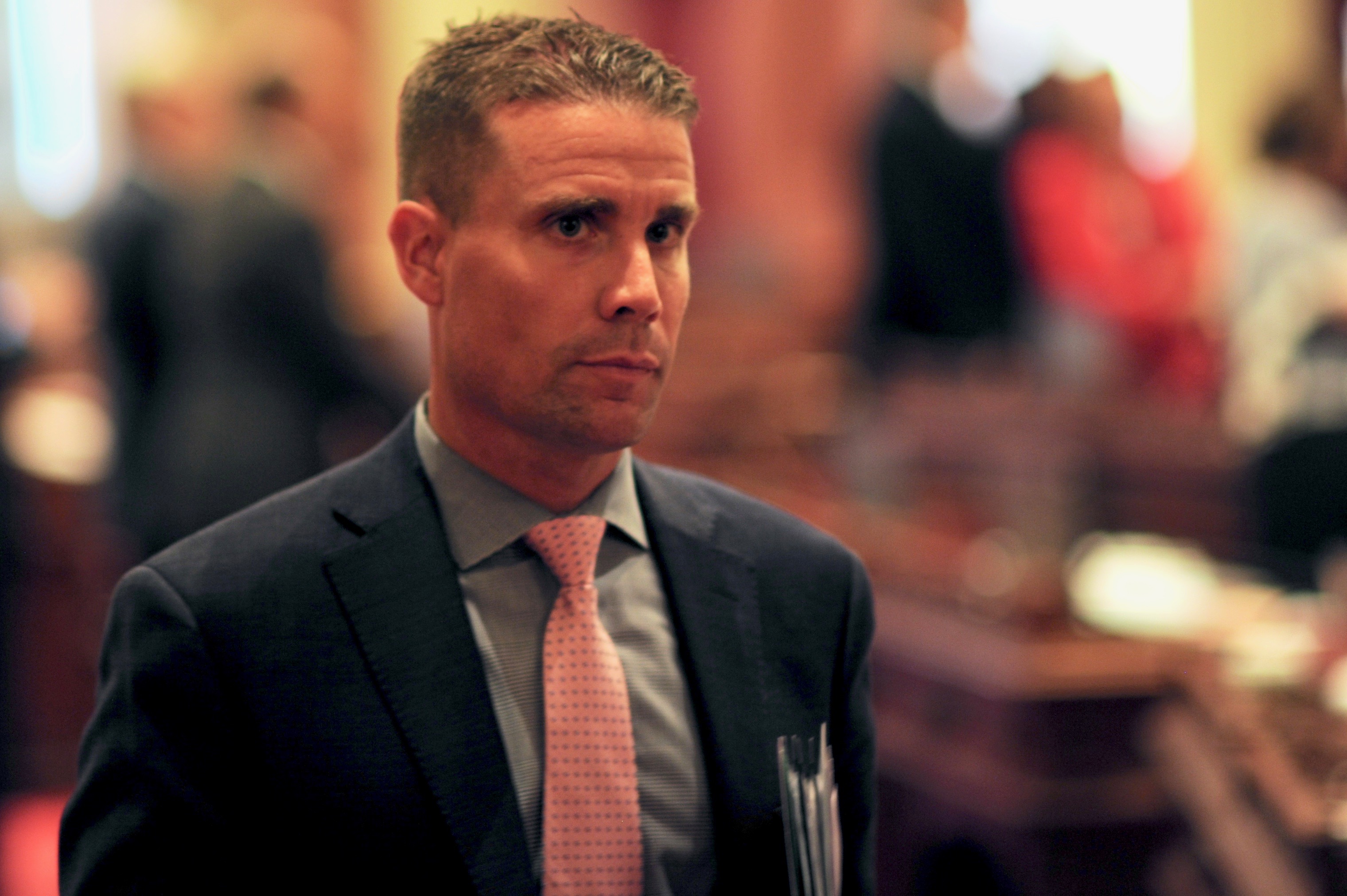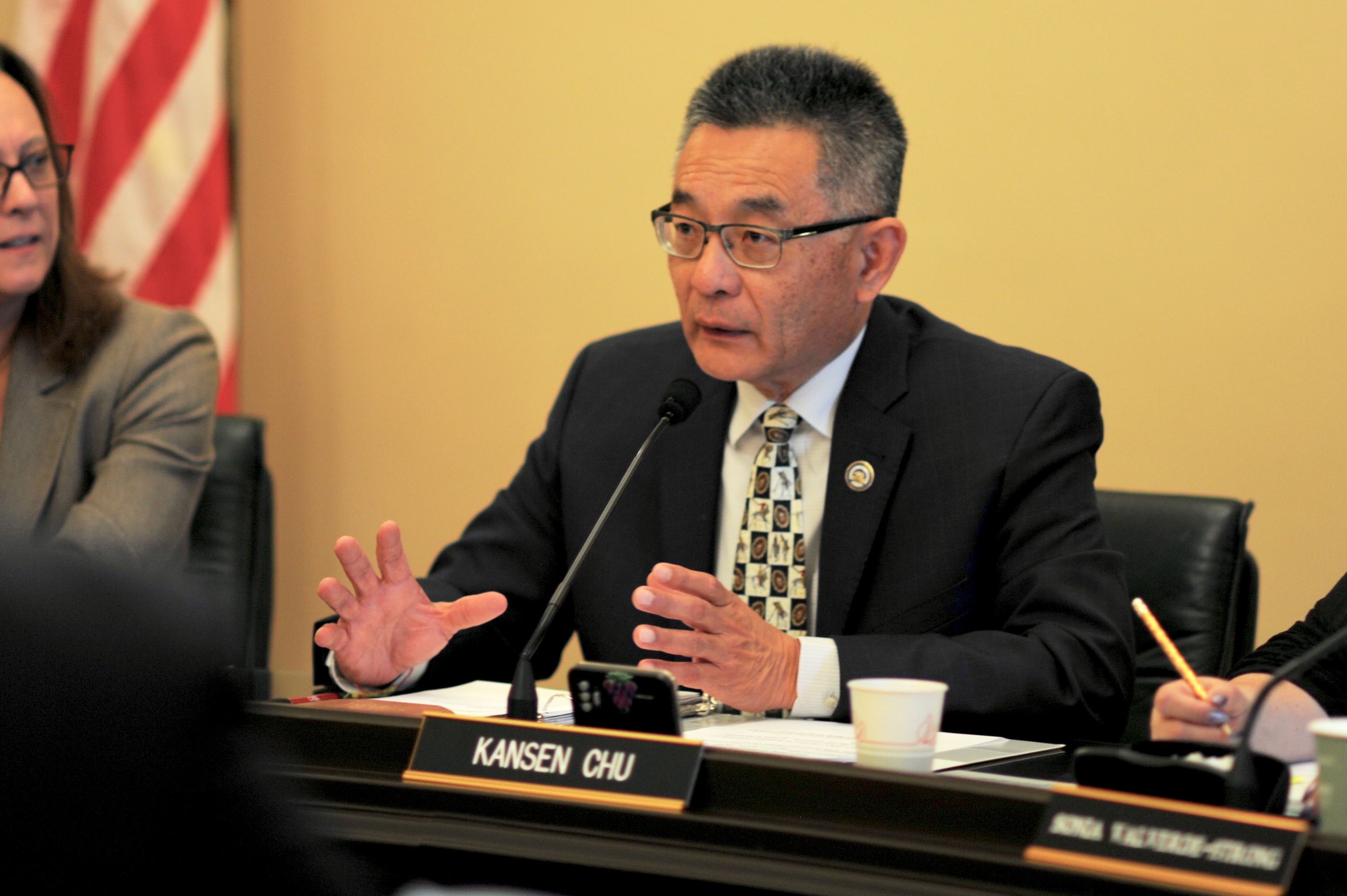
Sen. Maria Elena Durazo. (Photo: Kevin Sanders for California Globe)
Domestic Worker Cal/OSHA Protection Expansion Bill Set For Assembly Hearings
SB 1257 would remove the domestic worker exemption from Cal/OSHA law
By Evan Symon, July 14, 2020 9:23 pm
This week, both supporters and opponents of a bill that would add Cal/OSHA protections for household domestic workers built up their cases during legislative recess before an expected Assembly Labor and Employment Committee hearing to be held in the coming weeks.
Added protections for domestic workers
Senate Bill 1257, authored by Senator Maria Elena Durazo (D-Los Angeles), would remove the current domestic worker exception from the California Occupational Safety and Health Act of 1973. A Division of Occupational Safety and Health (Cal/OSHA) official would look into health and safety needs of domestic workers, such as house cleaners and nannies, and decide on on whether or not additional industry-specific regulations would be needed.
Also known as the Health and Safety for All Workers Act, SB 1257 would also authorize a Cal/OSHA official to dole out violations, violation investigations, and other similar protections for workers under Cal/OSHA law.
Due to the nature of the duties of domestic workers and the fact that they worked in private, and not public residences, they were not given Cal/OSHA protection when the law was first passed nearly 50 years ago.
Supporters of SB 1257
Supporters of the bill have pushed for its passage because of the laws working condition, wage, and health care protections. Originally written to protect domestic workers who worked in still dangerous post-wildfire areas, the bill was given new life this spring following the COVID-19 pandemic and the heightened need for health and safety among employees.
“Domestic workers are an integral part of our economy, but we treat them as if they’re invisible,” noted Senator Durazo in a speech last month. “It’s time they are protected, and there’s no explanation or justification to exclude them in this economy.”
Domestic workers themselves have largely organized in favor of the bill, with organizations such as the California Domestic Worker Coalition meeting together in Zoom rallies and assisting lawmakers in building their arguments for SB 1257.
“Many of our home care workers have gotten sick with coronavirus because they were exposed at work and didn’t have proper health and safety training and equipment,” said Lolita Lledo of the Pilipino Workers Center (PWC) in a statement
Other workers noted the need for such protections during the pandemic.
“We have to pay for our own equipment, and if we get sick on the job because our boss wouldn’t provide us with anything like masks or gloves, we have no recourse,” explained Kate Bautista, a cleaning woman in Los Angeles, to the California Globe. “And they know we can’t take off because we not only provide for ourselves but also our families back home. I have a family back in Manila that depends on me here.”
“So we have to pay to work, help others live, and not die ourselves.”
Opponents of SB 1257

Opponents have also been gathering against the bill this week, building their argument that domestic workers should not be given such coverage because they work in private homes, and thus should not be regulated under law.
“A touchy situation that we have here is that these are private homes that Cal/OSHA, the Department of Industrial Relations will be entering,” noted Senator Shannon Grove (R-Bakersfield) in the Senate last month.
Home owners who use domestic workers also argued against the regulations.
“We don’t want to get sick or see others get it either,” said Rebecca Duvall, a domestic worker coordinator for a neighborhood Home Owner’s Association outside of San Diego in a Globe interview. “We’ve all been supplying masks, gloves, hand sanitizer, you name it. Not just for the cleaners, but for everyone coming in who doesn’t have it.”
“But this is just regulating what people are doing anyway. These are private homes, and you want to regulate what goes on these in this aspect? It’s frankly a non-starter.”
“And we, as well as many other groups I know, already have a backup plan. We’re looking at Fiverr, work apps, hiring neighbors, and other avenues for cleaning and other services if this passes. So they may now be out of a job because we don’t want our rights infringed here. It’s not the option we want, but it would force our hand to find other ways. And you can bet tens of thousands of others are looking at that right now too.”
SB 1257, which passed the Senate last month 27-11, is expected to face a difficult series of hearings and votes in the Assembly in July and August.
- Bill to Require Law Enforcement Disclosure if AI Was Used To Help Write Reports - August 7, 2025
- Gov. Newsom Files FOIA Request To ‘Expose True Cost’ Of L.A. Federal Troop Deployment for Anti-ICE Riots - August 6, 2025
- California Redistricting: How Newsom’s Plan Will Demolish Hard Fought GOP Gains - August 6, 2025





Where will it end?
You would have to be out of your mind to hire a maid or housekeeper and risk an OSHA inspection. I have dealt with OSHA several times on construction sites (always passed with flying colors) but I will say they can be a nasty bunch and they tend to be totally disconnected from reality. There are few homes that could pass an OSHA inspection and the potential fines are quite high. This will put a lot of people out of work and it will also drive affluent people out of the state. What rich person is going to risk huge fines or live without domestic help?
If this covers gardeners I will have to fire my lawn service.
I have to add to my comments. OSHA loves anonymous complaints. Your mother in law, enemies, nasty neighbor, disgruntled house cleaner, your Ex, etc, etc now can sic OSHA on you and you will never be able to find out who did it. People that make anonymous complaints also lie, a lot! I know from personal experience.